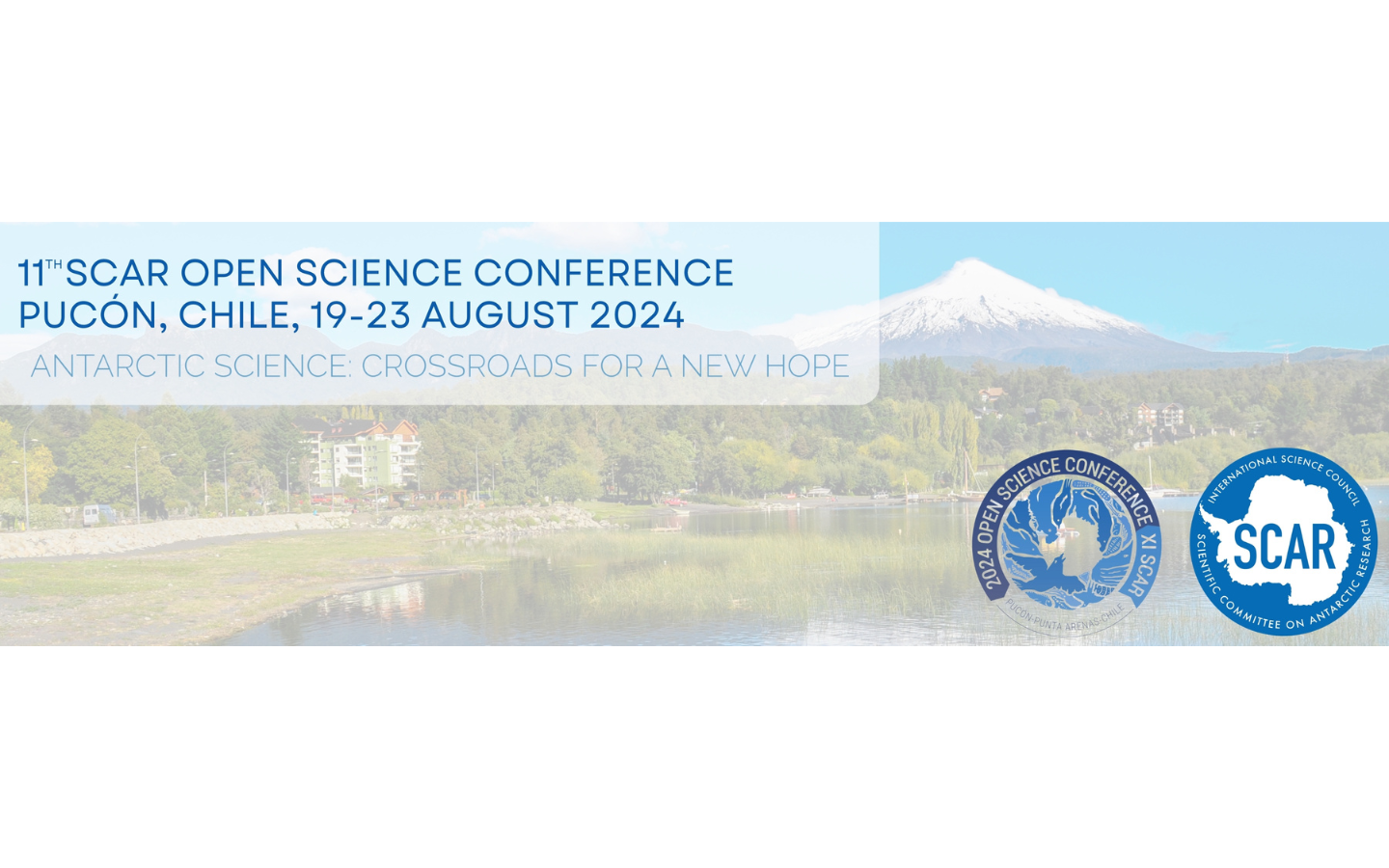The 11th Open Science Conference of the Scientific Committee on Antarctic Research (SCAR) was held from the 19th to the 23rd of August 2024, in Pucón, Chile. This year’s conference, themed ‘Antarctic Science: Crossroads for a New Hope,’ brought together over 1300 delegates from around the globe who are engaged in Antarctic research. The South African Polar Research Infrastructure (SAPRI) was represented by its research coordinators, Abu Nguna and Rabia Mathakutha.
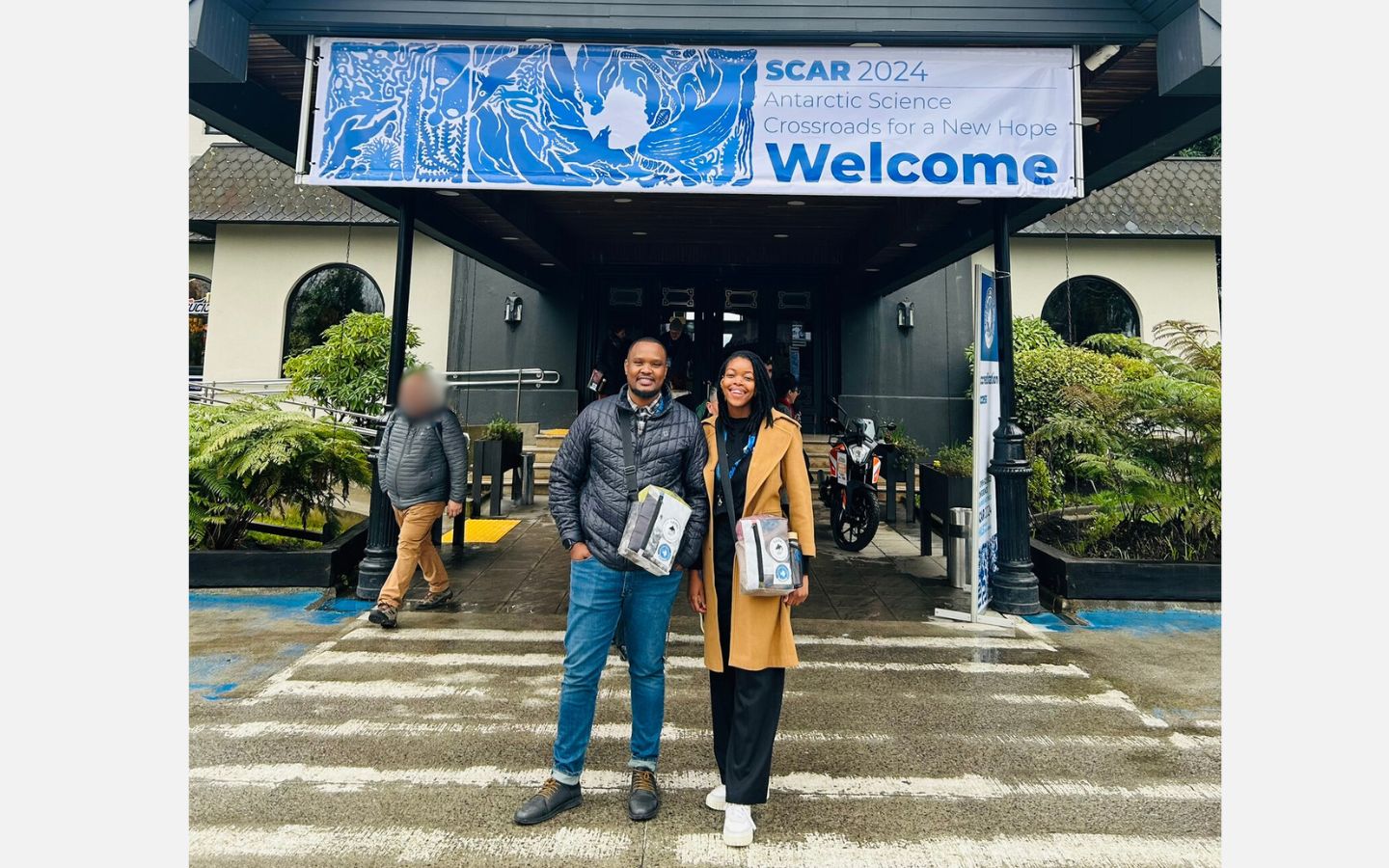
The SAPRI Research Coordinators, Abu Nguna and Rabia Mathakutha, at the SCAR Open Science in Pucón, Chile (source: Danielle Keys).
The SCAR Open Science Conferences are the world’s premier Antarctic science meetings and are held every two years to draw attention to Antarctic issues. They offer scientists from various disciplines and countries the opportunity to present their work, network and participate more actively in SCAR’s scientific activities. The theme of this year’s conference underscored the importance of collaboration in addressing future challenges.
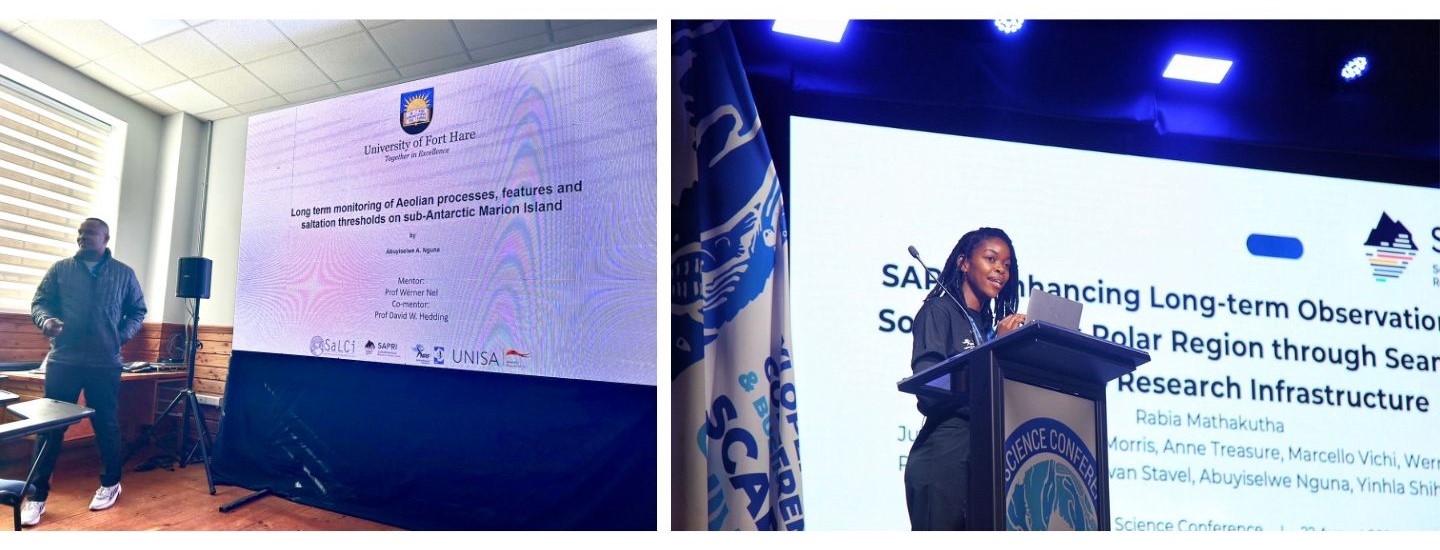
Abu Nguna (LTO-Land Research Coordinator) presenting about aeolian processes on Marion Island – insights from his PhD; and Rabia Mathakutha (DPS Research Coordinator) presenting about SAPRI at the SCAR Open Science Conference (source: Rabia Mathakutha and Harry Diaz).
This year marked SAPRI’s first participation in a SCAR conference, an event that significantly raised the research infrastructure’s profile on the global stage. SAPRI’s involvement facilitated knowledge exchange, fostered connections, and enhanced its visibility as a key global player in advancing scientific understanding and conservation of the polar region.
During the conference, SAPRI was presented in a session focused on advancing Antarctic observations for a sustainable future. The session aimed to explore the current state of coordinated observing efforts in Antarctica and showcase exemplary practices. SAPRI, with its mission to coordinate long-term monitoring projects in marine and polar sciences, was an ideal participant. The discussions were highly beneficial, further strengthening SAPRI’s commitment to integrating into a global network that supports a holistic Earth system science approach to long-term monitoring.
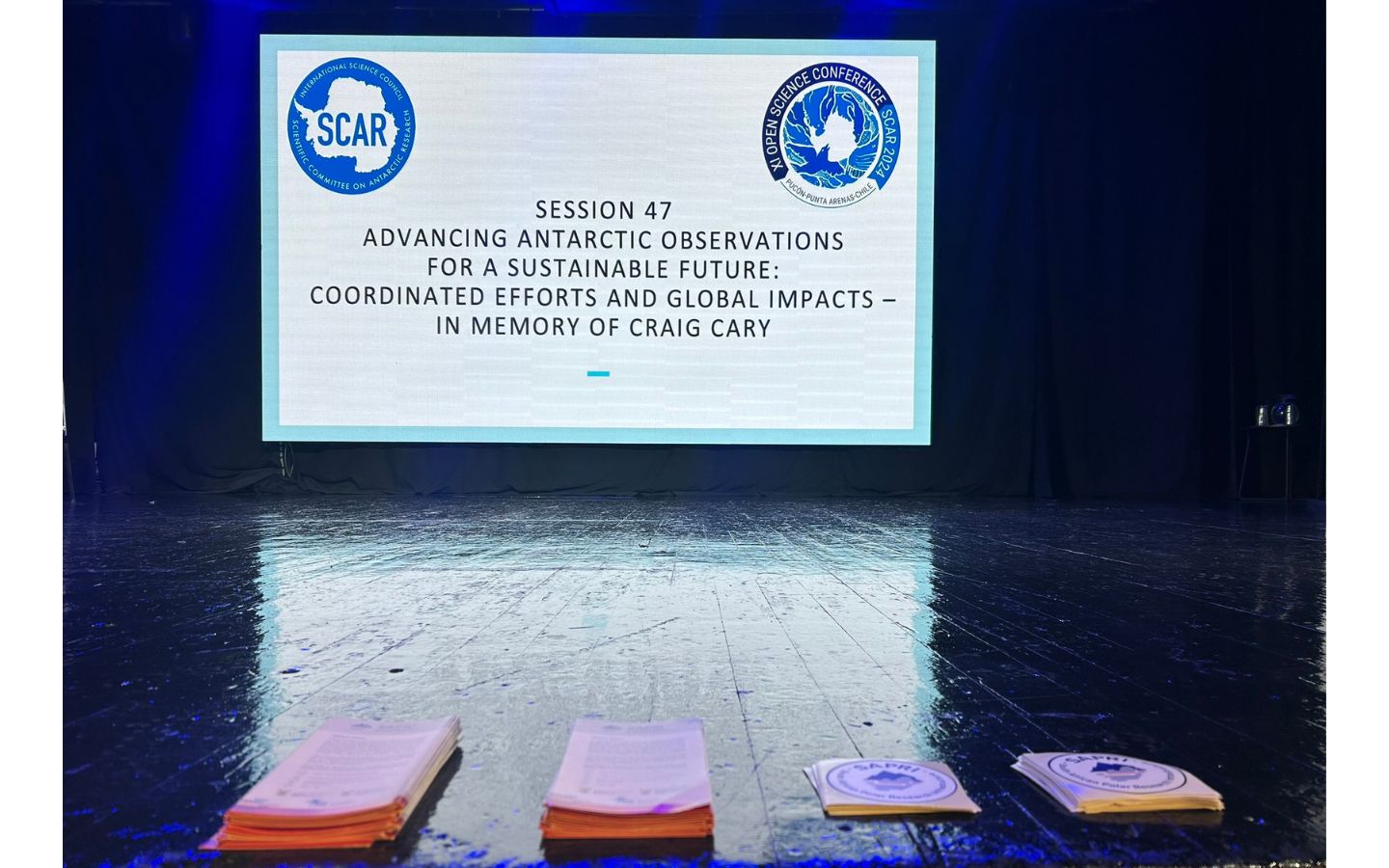
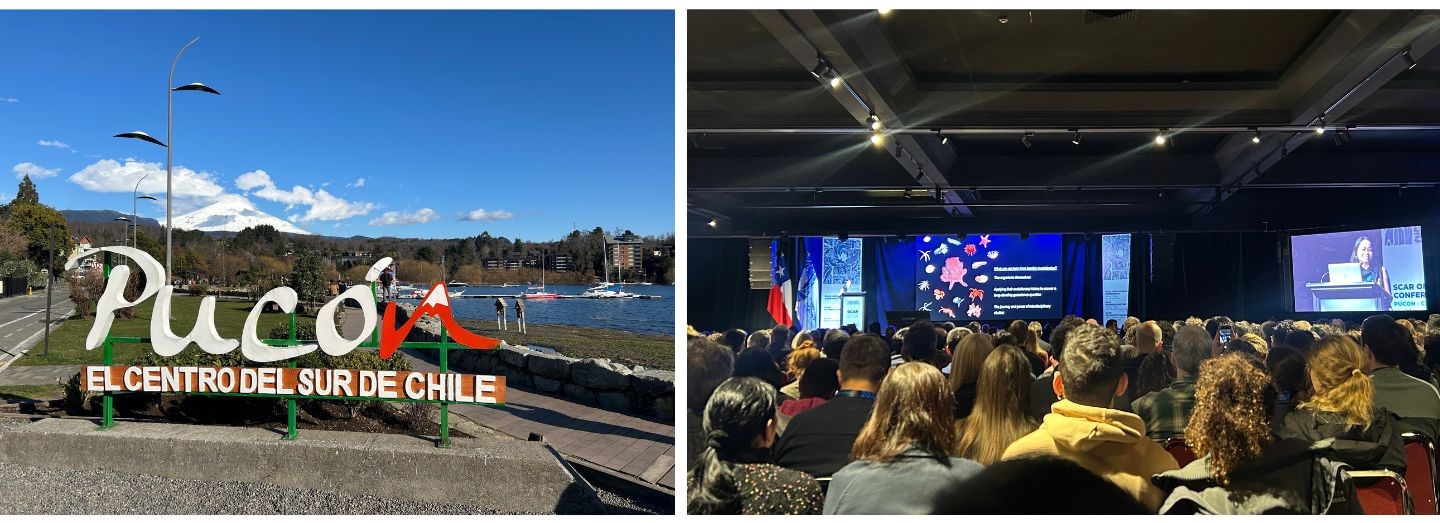
L: Scenary of Pucón, Chile. R: A plenary session and attendance at the SCAR Open Science Conference (source: Rabia Mathakutha).
Several South African delegates involved in the South African National Antarctic Programme (SANAP) as well as South Africans now based at international institutions participated in the SCAR Open Science Conference. These researchers contributed significantly, delivering both poster and oral presentations across various sessions, including topics such as Sub-Antarctic Islands as Sentinels of Change, Antarctic and Sub-Antarctic Permafrost Detection, Southern Ocean Phytoplankton and Zooplankton, Antarctica and the Arts, Antarctica’s Evolution through Supercontinent Cycles, Cutting Edge Antarctic Research, Atmosphere and Geospace, Marine Birds and Mammals Trophic Ecology, Resources in Data Management, and Publications in the Antarctic Humanities. South Africa was strongly represented at the conference, and SAPRI is proud to have been a part of this international event.
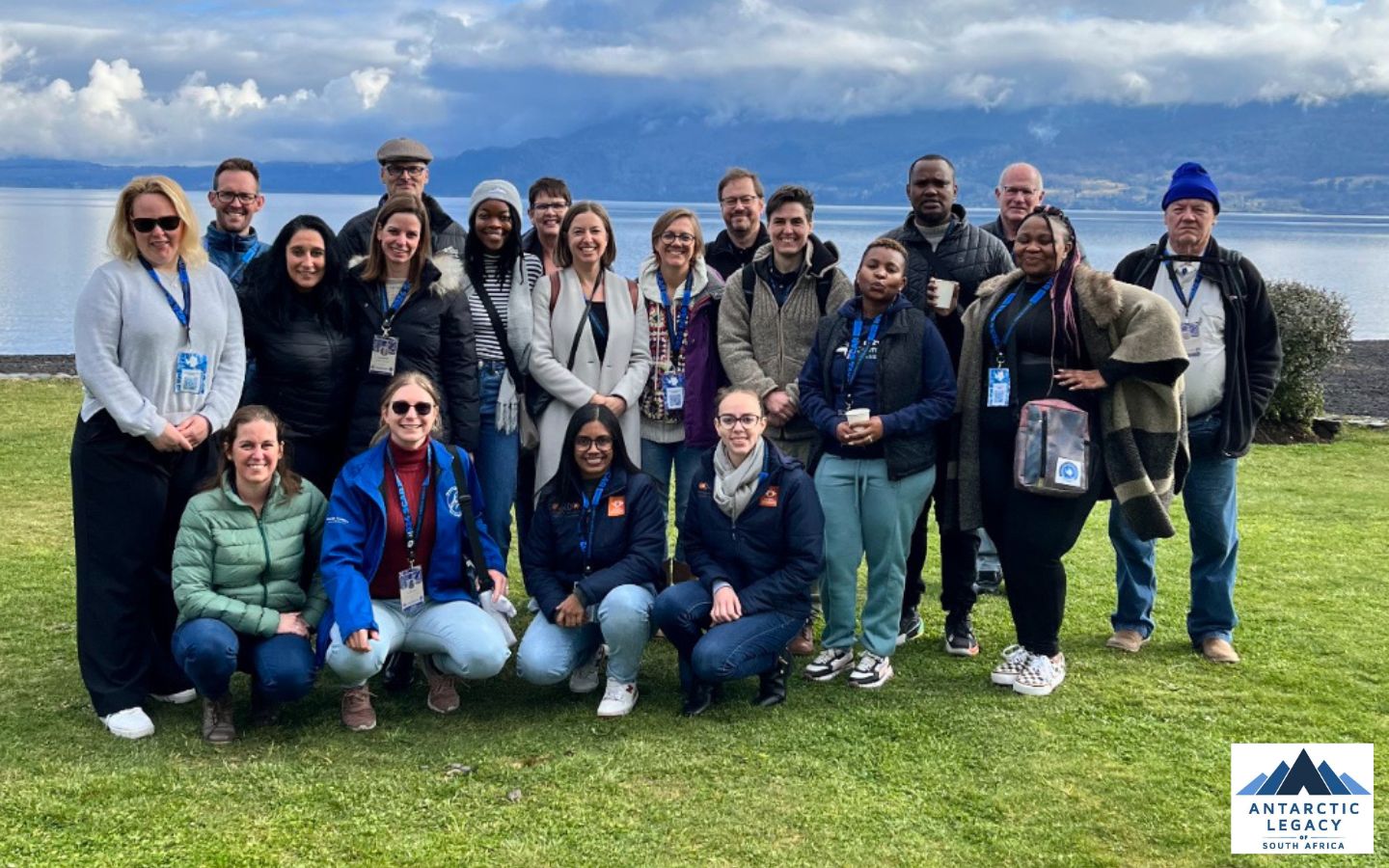
Some of the South African delegates who attended the SCAR Open Science Conference in Chile (source: Antarctic Legacy of South Africa).
The SAPRI Research Coordinators are grateful for the opportunity to represent SAPRI and South Africa at such a pivotal global forum, and they take pride in contributing to these essential discussions.
Rabia Mathakutha, South African Polar Research Infrastructure, 03 September 2024
